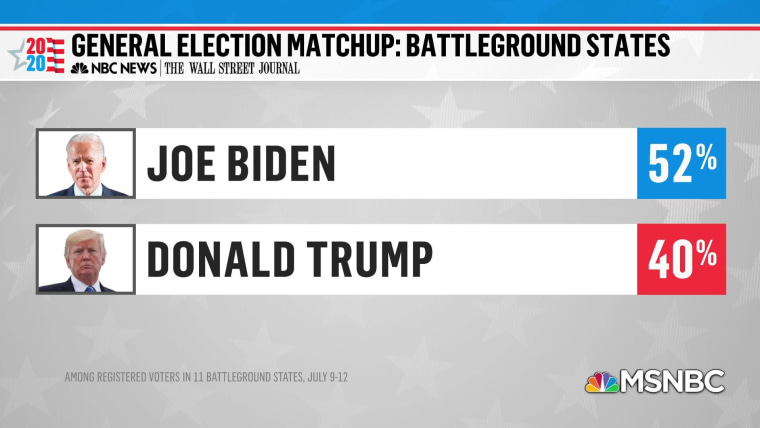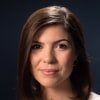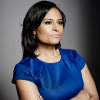WASHINGTON — President Donald Trump stepped into the Rose Garden on Tuesday and spoke for six minutes about a new U.S. policy toward China before turning to a different set of remarks for the remainder of his hourlong speech that largely attacked his presumptive election opponent, Joe Biden.
The president’s comments on China came from officials in the White House, and the second set from a laptop supplied by Trump’s re-election campaign — part of an attempt to separate the drafting of Trump’s political remarks from his government ones, a practice that follows a longtime tradition of presidents trying to draw a line between campaign and official business while seeking a second term.
On Tuesday, that effort was all but erased by the president, whose delivery at times seemed more geared toward a raucous rally crowd.
And while every incumbent in some way blurs that line between the official and the political, Trump stands apart from his predecessors in that, his aides say, he doesn’t even see a line.
“In the past you could say, ‘Here’s the president in an official capacity,’ and ‘Here’s the president in a campaign capacity,’ but Trump is full speed ahead at all times and there is no discernible difference between the two,” a former Trump White House official said. “His eye is always focused on targeting his political opponents no matter what day of the week it is.”
President Trump shakes up his campaign team
July 16, 202002:22The result is what unfolded in the Rose Garden on Tuesday: a 52-minute speech blending two sets of remarks written on two separate devices during which Trump attacked the presumptive Democratic nominee by name about 30 times and asked a rhetorical question about Biden's son — “Where's Hunter?" — that’s become a rallying cry for supporters of his re-election campaign.
While his predecessors took swipes at their opposition during official remarks and dutifully talked around their re-election challenger’s name, Trump has for months taken on his political rivals from anywhere and everywhere. He’s used the same rhetoric at a campaign rally, during an East Room ceremony or in a foreign capital meeting with a world leader both domestically and overseas.
And now, with his ability to hold rallies during the coronavirus pandemic curtailed, he seems even more inclined to use the White House grounds in ways past presidents have studiously avoided.
“Donald Trump is not about to change his tone and stop referring to his opponents,” a White House official said. “He’s done it for years. That’s not going anywhere.”
The White House has adopted some measures to keep government business separate from political affairs. For instance, White House speechwriters are supposed to have separate laptops for political and official addresses, according to a White House official.
The political portions of Trump’s Rose Garden speech on Tuesday were not produced using official resources such as government laptops, the official said.
But unlike his two most recent predecessors during their re-election bids, Trump hasn’t hired a separate campaign press secretary to travel on Air Force One to answer reporters’ questions on campaign matters during political trips. The White House press secretary, Kayleigh McEnany, who started in April, came directly from the Trump campaign. And a White House spokesman, Hogan Gidley, recently left for the campaign to fill her national spokesperson role.
The Trump White House similarly hasn’t had a separate phone on the presidential aircraft installed, for Trump to use for campaign phone calls. Presidents George W. Bush and Barack Obama both had separate press secretaries and separate phones.
Trump’s aides are discussing whether to have White House communications director Alyssa Farah serve as the press secretary during the Republican National Convention next month in Jacksonville, Florida, so that McEnany can deliver a speech there in a personal capacity.
McEnany would speak as a “Republican strategist,” according to a White House official.
McEnany and Farah are among the commissioned officers in the White House who are legally permitted to engage in some political activity on duty or in the workplace, and although they can speak at campaign events or fundraisers in a personal capacity, they are not allowed to raise money.
The Trump campaign declined to comment.
Trump showed he would take a different political tack than his predecessors the moment he entered the White House: He’s the first president to file paperwork for his re-election on the day he was sworn into office.
He held a campaign rally less than a month later.
Presidents also tend to keep a political ally close during a re-election campaign. Bush had his chief campaign strategist, Karl Rove, in the White House. Obama brought his 2008 campaign manager, David Plouffe, into the White House as he geared up for re-election. And Trump has his son-in-law, Jared Kushner, who is seen by the president’s allies as the de facto 2020 campaign manager, in the West Wing.
Kushner acts as the main conduit between the White House and the re-election campaign, even appearing at briefings at the Virginia headquarters in his official capacity, and is involved in all the key decisions for the re-elect effort, including this week’s shake-up. Bill Stepien was elevated to campaign manager, demoting Brad Parscale to senior adviser in charge of digital strategy. Parscale had been in the top role for more than two years.
There are some clear rules about the president’s political actions on the White House grounds — he can’t make fundraising calls from the Oval Office, for instance. But presidents are mostly guided by an unwritten code based on tradition that can be easily stretched by one who relishes in pushing institutional boundaries, as Trump does.
“Most presidents more or less respect the fact that the Rose Garden and the White House, that’s sacred space, that’s something that belongs to all of us, and most presidents avoid getting too partisan while using those spaces,” presidential historian Michael Beschloss said Wednesday on MSNBC’s “Andrea Mitchell Reports” when asked about Trump’s Rose Garden appearance the day before.
“Instead we sat through this 50-minute rant yesterday that included personal attacks on Joe Biden’s family and things that are much more suited for a convention hall or a sports arena,” Beschloss said. “That is something different from what we’ve seen before. Donald Trump yesterday crossed what I think is a very important line.”
Trump’s White House adopted more stringent guidelines for separating political and official business after the 2018 midterm elections, according to officials. Some officials had been accused during the midterms of violating the Hatch Act, which bars administration officials — except the president and vice president — from participating in certain political activities.
The White House counsel’s office now reviews all speeches by the president’s aides to ensure they comply with the Hatch Act, a senior official said.
The official said the president’s political events and trips are billed to the re-election campaign or the Republican National Committee, as has been the case for his predecessors.
If any GOP officials tied to the re-election effort travel on Air Force One, the cost of their travel is supposed to be reimbursed to the Department of Treasury, according to FEC data. And if portions of a presidential trip are political and others are campaign related, travel expenses are supposed to be divided up according to a set formula.
Sometimes that formula might be recalculated if the president is deemed to have been too political in remarks the White House counsel’s office had cleared as official, said Ian Bassin, who was associate counsel in the Obama White House.
“This is where the difference between a president who stays on script and a president who doesn’t matters,” Bassin said. “If you go out to a manufacturing plant and say re-elect me and not my opponent, the taxpayers are paying for your campaign.”
Since March, Trump has traveled to battleground states about a dozen times in his official capacity. It’s one of the perks of incumbency that presidents strategically use to roll out official policies during their re-election campaigns. But, here too, Trump has pushed the traditional boundaries by criticizing Biden on nearly every one of these trips.
Last month at an official event in Phoenix, Trump walked on stage to several thousand supporters who’d been chanting “Four more years!” and warned that “violence and mayhem” will reign “if a guy like Joe Biden gets in.”
The president’s taxpayer-funded event began with fiery warm-up speeches from his son Donald Trump Jr. and the Trump campaign’s fundraising chief, Kimberly Guilfoyle, that also mocked Biden.
“The rules are very blurry. There have been calls for literally decades to make them clearer,” said Adav Noti, a former associate general counsel of the Federal Elections Commission and chief of staff at the Campaign Legal Center.
“Past presidents have been careful to err on the side of caution and really clearly demarcate their campaign activity from their office holder activity,” Noti added. “This administration has not erred on the side of caution.”





